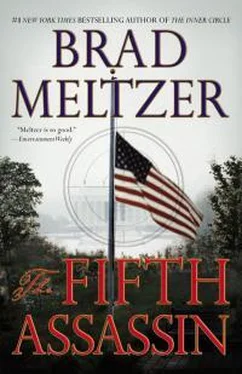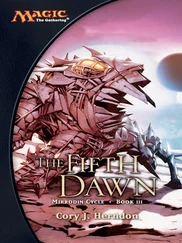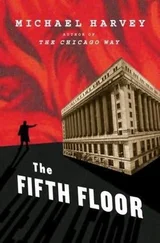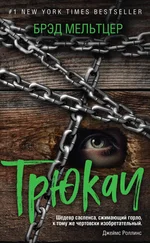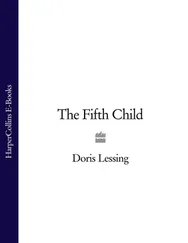“That doesn’t mean—”
“It does, Beecher. They’re done. The Knights are done.”
“You keep saying that, but just remember, all it takes is one crazy cockroach to skitter free.”
“I agree. Which is why it’s our job to find him. Whether it’s Marshall or anyone else,” he says as we enter the residential streets of suburban Maryland.
“I hear you, Tot. But after everything we just saw at Walter Reed, plus the way the murderer’s meticulously re-creating these crimes—”
“He’s not that meticulous. Don’t forget, the pastor he shot today didn’t die. He survived.”
“Then maybe he’s even more of a perfectionist than we thought,” I counter. I don’t have to explain. Tot knows that when President Garfield was shot all those years ago, he should’ve never died. What killed him was the medical malpractice of a Dr. Willard Bliss, who stuck his unsterilized fingers into the wound, causing a hemorrhage. “And Tot, wasn’t that the same Dr. Bliss who was also there at Lincoln’s deathbed? Quite a historical coincidence.”
Turning onto my block and stopping in front of my narrow townhouse, Tot doesn’t answer. He knows that around every dead President, there’s always talk of a greater group at work.
Kicking the car door open and grabbing my brown leather briefcase, I step out into the cold and look back at Tot. “Can I ask you one last question?”
“You want to know who’s running the Culper Ring now.”
“No. Well… yeah , but—”
“It’s been two months, Beecher. Give it time.”
“I will, but—” I look up at the black sky, then back into the car. “Just tell me, what you said before: about how aggressive the Culper Ring used to be, and the proactive guy who hunted everyone down…” I stare at Tot as the moonlight makes his blue eye glow the color of lightning. “Tot, are you sure the Culper Ring are the good guys?”
His lips curl into a grin that lifts his wizard’s beard. “Beecher, I wouldn’t be involved if we weren’t. But let me also say, if you do wanna look at history, you know that no one can always be the good guy.”
He takes his foot off the brake, hoping I’ll shut the door. I grip it, refusing to let go. Up until two months ago, I used to keep a brass perpetual calendar—a paper-scroll calendar with a built in clock—on my desk at work. But when everything happened with Clementine, and Tot invited me into the Culper Ring, he told me that you have a choice: You can run your life with a clock, or run it with a compass. The next day, I bought an antique Watkins & Hill thermometer-and-compass from the late 1700s. That’s what’s on my desk today.
“No, Tot. We need to be the good guys. I need to. Always.”
His beard lifts even higher. “I know, Beecher. That’s why I picked you.”
With a kick of the gas, the Mustang disappears up the block as a cyclone of exhaust spins through the night air.
My brain’s spinning just as fast as I fish for my keys and climb the steps to my townhouse. But as I realize that my front door is already unlocked, the spinning stops.
A careful push sends my door swinging inward. The lights in my living room are on. And like the three bears coming home from their walk in the woods, I find a woman with short golden locks sitting in my oversized lounge chair.
Last time I saw her, her hair was black. The silver rings on her thumbs and pinkies are all gone. So’s the funky wooden bracelet she used to wear.
But I’ve known those ginger brown eyes since I was twelve years old.
“I know you want to kill me,” Clementine says, palms facing me in the hopes of making peace. “But before you say anything, Beecher, I know what happened to your father.”
49
President Wallace was in your church. Were you advising him?” A.J. asked, standing at the center of the hospital chapel and taking a step toward the pastor’s wheelchair.
“No. It was this past Christmas—on the anniversary of when FDR brought Winston Churchill there during the war. Every President goes to church on Christmas. That’s why President Wallace—” Pastor Frick rolled backward, his face going pale.
“Is something wrong, sir?”
“T-This morning, in my office… when the attacker called it a blasphemy … Do you think he was referring to the President’s Christmas visit?”
“Did something happen?”
“Nothing terrible… not like this… but if you remember, we took criticism for the visit,” Frick explained, his voice slowing down as he relived the moment. “They told us that Wallace was bringing his son and his daughter, so we had everything ready, a beautiful service. But when the President finally arrived, he didn’t just have his family with him. He brought other guests too.”
A.J. wasn’t there, but he slowly remembered, nodding at the pastor. “He brought a rabbi,” A.J. said. “And a Muslim leader.”
“A rabbi, an imam, and a pastor. If the three of us walked into a bar—” Frick smiled inadvertently.
“So back to your attacker. You think that when those three religions were brought together, he might’ve seen it as a blasphemy?”
“I’m just telling you that some of my fellow church leaders like a little more Christ in their Christmas.”
A.J. heard that tone in the pastor’s voice. “And how did you feel about it, sir?”
At that, Pastor Frick was silent.
“I’m not trying to criticize the President,” the pastor finally offered, “but when they first approached us about the Christmas service, they said that Wallace wanted to bring the three faiths together so we could have a dialogue. That was his word. Dialogue. But when it came to actual communication, the three of us—me, the rabbi, the imam—we didn’t say a single word to each other. They gathered us together, your fellow agents made President Wallace appear from nowhere, and next thing we know, fifty flashbulbs and camera lights are shining in our faces.”
“It was a photo op.”
“Of course it was a photo op. But do you know why President Wallace did it? Because on Christmas morning, it’s far better for millions of voters to see the President with three different religious leaders than to see him kneeling in church and proclaiming his servitude to Christ. That’s not a personal attack. It’s just the state of politics and religion in the twenty-first century.”
“I’m not sure that’s a blasphemy,” A.J. countered.
“That’s not my word either,” the pastor said. “But let’s not forget, the people who founded this country were religious men. President Wallace isn’t—he attends on the big days. It’s not a flaw, but for millions of believers out there, it will take a toll.”
A.J. nodded. “What about the rest of the President’s visit? Did you get any time alone with him? Did you offer any advice? Say any prayers?”
For the second time, Pastor Frick went silent.
“Sir, if there’s something you shared with the President…”
“It was Christmas Day. Of course we shared a prayer. But what was said between us… forgive me, but that moment is private. Even if he is the President, I promise my congregants—”
“Pastor Frick, I understand how sacred those interactions are. I do. But you also understand—I work for the Secret Service. I wouldn’t be asking these questions if I didn’t think the President’s life was in danger.”
Still seated in the wheelchair, Pastor Frick stared at A.J. in horror. “Did I do something wrong?” Frick asked, his voice catching. “If I put President Wallace in danger…”
“This is solely for our investigation, sir. You have my word.”
The pastor took a deep breath. “We only had… it couldn’t have been two minutes. It was after we took the photo, before I went out on the pulpit. He pulled myself, Rabbi Moskovitz, and the imam into a small circle and told us how vital it was to bring everyone together. He told us he was trying to do the same for our country. So that’s what we prayed for. We lowered our heads… we clasped hands. His prayer was to bring the country—to bring all our voices—together. It was a heartfelt prayer.”
Читать дальше
